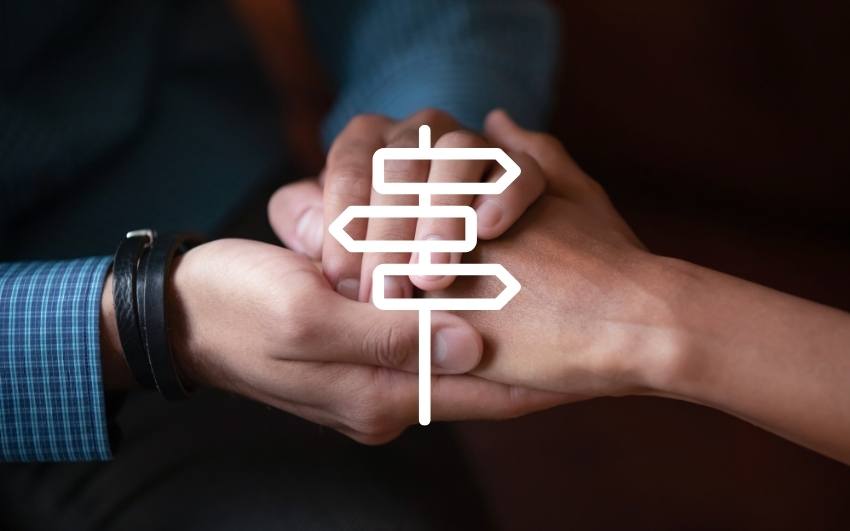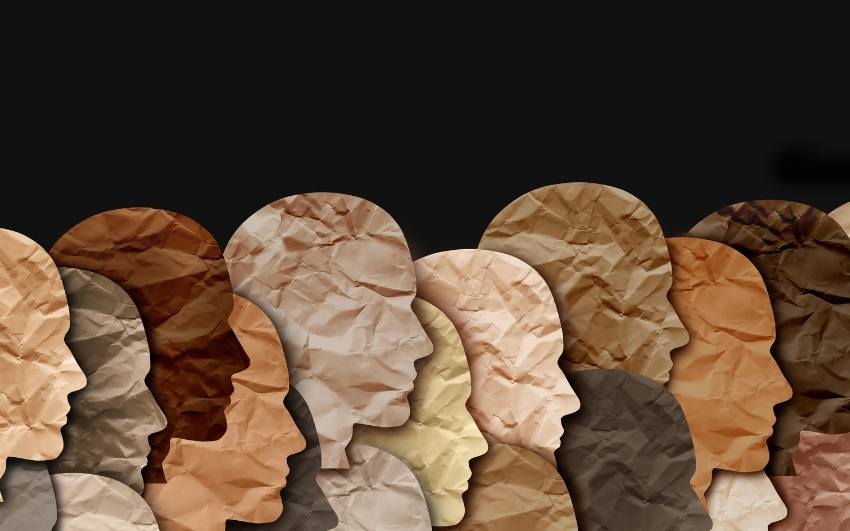
This is a complete guide to empaths.
In this quick guide you’ll learn:
- What empaths are
- The unusual advantages empaths have
- 13 signs to help understand if you’re one
- The different types of empaths that exist
- Lots more
So if you’re ready to go “all in” on learning about empaths, this guide is for you.
Let’s dive right in.
Table of Contents
Introduction To Empaths
- Have you ever been told that you are too sensitive or emotional?
- Do you feel tired after spending time with certain individuals?
- Is it possible to determine whether people aren’t telling you the whole truth when they’re around?
- Do you get nervous in large groups of people?
- When a friend of yours is exceptionally joyful or distressed, do you experience similar emotions?
If your answers yes to any of these questions, you might be an empath.
What are Empaths?
What is an empath? Empaths are people who have a strong capacity to perceive what others around them are thinking and feeling.
The term “empath” may be used by psychologists to characterize a person that has a lot of empathy, frequently to the point of absorbing pain on behalf of others at their own cost.
The terms empath and empathic are sometimes used interchangeably to describe someone adept at picking up on others’ emotions and energies.
However, the term may also be used as a religious concept to refer to someone with supernatural abilities to sense other people’s feelings and energies.
This article will concentrate on the psychological aspects of being an empath.
Empaths have several advantages.
- Empaths make wonderful friends.
- They are great listeners.
- In difficult times, they are a loyal friend.
- They have a big heart and a giving nature.
- Empaths are frequently highly intuitive and emotionally intelligent as well.
While empaths are great friends, some of the same qualities that make them such fantastic pals can be difficult for empaths to handle. Because empaths feel what their companions are going through, they can become overwhelmed by unpleasant feelings such as worry or rage.
Empaths are prone to adopting the problems of others as their own.
Even when asked to do too much, it is difficult for them to establish personal boundaries and say no.
Like most other people, Empaths can become tired after spending too much time in social situations. Empaths are typically introverts and need solitude to recharge.
A 2011 study found a link between high empathy and social anxiety among adolescents.
Empaths often find large groups particularly intimidating, as they are sensitive to various noises and continuous babbling. When surrounded by nature, they feel their most comfortable.
Signs That You’re an Empath
An empath has a keen sense of others’ feelings and emotions to the point that they can feel them themselves.
Empaths perceive the world differently than other folks; they are highly conscious of others, their pain spots, and what people want emotionally.
However, this is not limited to feelings. Empaths can experience bodily discomfort and may sense a person’s intentions or origin.
To put it another way, empaths seem to pick up on a lot of the lived experiences of others around them.
However, there may be a difference between empaths and HSPs. One of the four characteristics that make someone an HSP is having a high level of empathy, but being sensitive to many stimuli rather than emotions is just one of them.
Probably, most empaths are also highly sensitive; however, not all highly sensitive individuals are necessarily empathetic.
How can you tell if you’re one? Here are 13 indicators to look for.
13 indicators to tell if you’re an empath

1. You take on other peoples’ emotions as your own
The first, most common characteristic of an empath is this. You’re likely to detect what others around you are feeling, even if they believe they aren’t showing it. But that’s not all: you may feel the emotion as though it were your own, essentially “absorbing” or “sponging up” it.
This is a bit of a gray area. But we know that those with a high level of empathy also have highly active mirror neurons, which are the brain regions that read emotional signals from others and determine what they’re thinking or feeling.
If you’re an empath, you may pick up on minute changes in expression, body language, or tone of voice that others miss and immediately detect what the person is feeling.
Because of their nature, mirror neurons allow you to experience emotions as though they were your own.
This might be a wonderful talent, but it can also be tiring and overwhelming at times.
2. Sometimes, you experience sudden, overwhelming emotions when you’re in public
It’s not only in one-on-one conversations that you can sense another person’s emotions. It can happen when there are other people around and without notice.
If you’re an empath, going out in public may be difficult since you could suddenly be filled with a sensation that emanated from “nowhere” — or, more correctly, someone else nearby.
3. The “vibe” of a room matters to you — a lot
On the other hand, Empaths are highly sensitive to the “feel” or environment of their surroundings. They flourish when surrounded by peace since they internalize themselves. Because of this, places of beauty may have a powerful impact on empaths, whether it’s a peaceful garden, a lovely bedroom, or the corridors of a museum. Similarly, chaotic or unpleasant settings will rapidly drain an empath’s energy.
4. You understand where people are coming from
Dr. Judith Orloff, an empath expert, explains that this is the essence of an empath, even more so than absorbing others’ emotions. After all, empaths can learn to dampen their absorption of feelings, and some empaths never absorb them at all. But even when they’re having difficulty expressing themselves, all empaths can intuitively perceive what someone is attempting to communicate.
Empathy, after all, is about comprehending and connecting with others. And that’s what it means to be in tune with where people are coming from.
5. People turn to you for advice
Empaths are frequently sought out for advice, support, and motivation by their friends due to such understanding. It also helps that empaths are good listeners who will often wait for someone to finish speaking before responding from the heart.
If this describes you, you undoubtedly know how difficult it can be — people don’t always recognize how much of your time and attention it takes to be a listener and advisor, and some individuals take it for granted.
6. Tragic or violent events on TV can completely incapacitate you
Even if a terrible event isn’t happening to you, it feels like it is. You may seem to “live through” the agony of loss of the situation yourself, whether you’re thousands of miles away or watching a real-world tragedy on TV. It might be quite daunting at times.
Empaths, like HSPs, may not be able to handle watching violence or human suffering, even if it’s a film that others enjoy.
7. You can’t contain your love of pets, animals, or babies
Yes, everyone knows that babies are beautiful little miracles and dogs and cats are adorable — but those sentiments seem to resonate much more strongly with you. You may not be able to stop yourself from gushing over someone’s beautiful child or immediately kneeling to offer affection to a puppy. Some people might think your reaction is excessive, but for you, how can anyone not react this way?
One of the many advantages of being an empath is that all of your emotions, good or bad, are amplified.
8. You might feel people’s physical illnesses too — not just their emotions
You can feel as if you are experiencing someone else’s illness or injury, even when they are not present. This does not imply simply feeling compassion or worry for them; it also includes having actual physical symptoms, such as pain, tightness, or soreness in the same regions of the body. It feels like your empathetic brain is both reflecting and projecting the other person’s feelings into your own body.
Empathy can be difficult, even debilitating. It’s probably not a “present” that most people with empathy enjoy receiving. But it’s also at the heart of why empaths are such effective caregivers. They wouldn’t be able to genuinely connect with someone suffering or provide them just what they need to feel more comfortable without this talent.
It’s not surprising that empaths are attracted to nurses, physicians, or elder care providers. It would be strange not to act on it if you can feel everyone else’s suffering.
9. You can become overwhelmed in intimate relationships
Relationships can be difficult for everyone. But consider how complex those problems are when you can feel your spouse’s every mood, irritation, and yes, even lie. Positive feelings may also become overwhelming — as if the relationship might “consume” you. Does this resemble anything you’ve experienced?
But it’s not simply that. When you live together, the same conditions create a barrier. Their cohabiting partner always feels an empath’s “energetic” presence, and it feels like an invasion. Empaths regard their houses as a haven where they may escape the continual pressure on their emotional senses, and a partner disrupts this.
Some empaths choose to remain single because of it, while others learn to adjust — perhaps by creating a room that’s theirs alone or (extremely crucial) finding a partner who understands their limits.
10. You’re a walking lie detector
Of course, there are times when someone has successfully duped you… but even then, you knew you were going against your natural impulse from the start. The fact that an empath’s ability to interpret even the most subtle social signs allows them to almost always see through the deception. You can tell whether someone is being honest or not if you don’t know exactly what they want. Even if you aren’t sure what someone wants, you can tell whether they are completely truthful or shifty.
11. You can’t understand why any leader wouldn’t put their teams first
Several managers and group organizers do not pay attention to their team’s requirements. This isn’t just inconsiderate or inconvenient; it’s a leadership failure.
This is because empaths can be strong leaders in their own right and, when they are, it’s usually by attending to their team and uniting individuals around common objectives. Empaths are generally thoughtful and attentive, ensuring that each team member feels heard. The result isn’t just a happier group of people; it also allows them to make better judgments by getting all the facts.
12. You have a calming effect on other people — and the power to heal them
It’s true. People seek out empaths for guidance, just like they do with psychics. Individuals frequently seek out their most empathic friends when going through a tough period.
This is something you can create and utilize to help people heal by overcoming destructive habits. However, if you hide your sensitivity and empathy, you won’t make a difference.
13. You cannot see someone in pain without wanting to help
Can you pass by someone in need without thinking about assisting them? Do you have difficulty turning off your concern for others because “there’s a job to do”? If the answer is no — even when you’re busy, not even when you’re rushed — then there’s a chance you’re an empath.
This is why empaths are such an important element in the magnificent kaleidoscope of humanity. People are the most brilliant things on an empath’s radar, and it’s difficult not to notice — and respond to — the needs of others. That is where an empath’s therapeutic ability originates, and it’s something we could all use more of in our society.
The Different Types Of Empaths:

1. Emotional empath
Empaths are individuals who have a strong emotional connection with others. The first and most frequent empath is an emotional empath. These people quickly take on (and absorb) the emotions of others, whether they’re pleasant or unpleasant.
2. Physical empath
Physical empaths identify with other people’s physical symptoms and even have them themselves. According to certain research, physical empaths can sometimes see where someone else is having a problem.
3. Intuitive empath
Intuitive empaths have a natural ability to perceive other people’s emotions and can access this information directly into their minds. With insight popping into their brains rapidly, intuitive empaths are highly claircognizant. They have a tremendous gift of intuition, which is why these folks must learn how to handle it so that they don’t get emotionally, mentally, or even physically exhausted.
4. Plant empath
Plants have their demands, and for a plant empath, they are easily perceptible. They make fantastic gardeners or landscapers since they know precisely how to care for plants. They adore spending time around plants; whether in nature or gardens, whether it’s out and about or just near the plants, they may tend to.
5. Animal empath
Animal empaths have a natural ability to sense and respond to animals’ emotions. These individuals have probably always had an affinity for animals, and it’s not unusual that animals are attracted to them as well. The animal empath likes being in the company of animals, much like the plant empath wishes to be around plants. They may want to work with animals as veterinarians, animal shelters, or anything else involving them.
6. Earth empath
Earth empaths are in tune with the planet as a whole. It’s similar to a plant empath, only on a much larger scale. They feel linked to the entire world and Mother Nature, and when natural catastrophes strike, they’re deeply affected. They’re also very sensitive to changes in the environment.
Benefits Of Being An Empath

The most significant advantage of being an empath is fostering a more peaceful society, especially in interpersonal interactions such as among family and friends. People who have a lot of empathy are better equipped to assist someone suffering or acting violently.
Empathy also aids in the maintenance of social ties, which helps to minimize loneliness and other emotions or states of being that might have detrimental health consequences.
People with a strong sense of empathy are more likely to maintain these connections since they are better able and willing to feel, understand, and desire to assist hurting individuals.
Some empaths may also feel compassion contentment, a sense of gratification derived from assisting others in pain or suffering. An empath might be happier after assisting someone than if they did not assist that individual.
Difficulties Of Being An Empath

There are certain drawbacks to being highly empathetic. If an individual is greatly empathetic, and people seek out their advice, this excessive sharing of bad feelings may be harmful.
EMs may experience burnout if they cannot separate their feelings from others’. If this happens, it is usually only for a brief time before the individual’s empathy and compassion return. Trusted Source
When faced with another person’s bad feelings, especially if they believe they can’t assist, Empaths may feel down, drained, or inadequate. As a result, an empath must take a step back and focus on themselves to avoid burnout.
Summary
Empathy is a valuable quality.
In many countries, people are still taking courses and learning how to use this quality.
Empaths, or people who possess a high degree of empathy, are more likely to feel, identify, and mirror the feelings and actions of others. Empaths can benefit and suffer from mirroring, so it’s critical to take time for oneself and assist others.
In this post you’ve learned about what empaths are and the unusual advantages and disadvantages that empaths have in life.
We have also looked at 13 signs to help understand if you’re an empath.
We have also discussed the different types of empaths that exist, and how to identify yourself.

Petri Maatta is a photographer, filmmaker, and webdesigner who has been working for over 20 years in the creative industry. Fascinated by manifesting for business reasons, Petri was determined to find out what it took to create success. He started his career with seven years of business failures before he found success by learning about manifesting from a mentor with a Fortune 500 company. Today Petri shares his knowledge through DreamMaker courses designed to help people change their businesses and lives while living on their terms.
STAY IN THE LOOP
Subscribe to our free newsletter.
Stay up to date! Get all the latest & greatest posts delivered straight to your inbox


